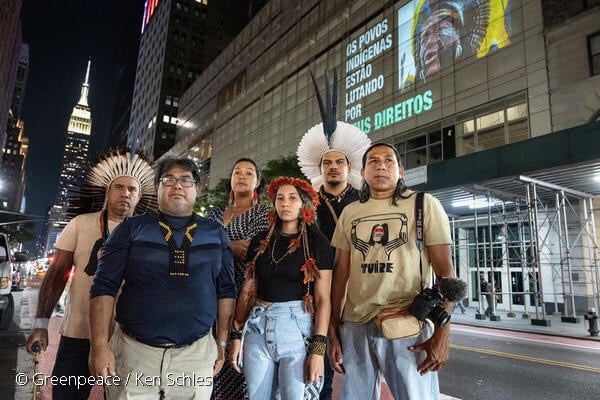A two-year Greenpeace investigation has confirmed that logging in the Amazon is still out of control and often taking a predatory form.
Governance in the timber sector in the Brazilian Amazon is weak and open to exploitation, allowing criminals launder illegal timber as legal with official documentation. It is estimated that in Pará state, the largest producer and exporter of timber in Brazil, 78 percent of logging occurring there is illegal. Greenpeace investigated specific cases of the sector’s systemic crime and found links between cases of fraud and the global marketplace. The United States is the largest importer of Brazilian timber. Companies like Lumber Liquidators, the country’s largest national hardwood flooring retailer, have purchased wood from exporters that have bought wood from saw mills that have processed laundered timber.
This investigation below discusses the Brazilian timber sector today and explains how the system is designed to fail and easily defrauded. Then the investigation illustrates on five emblematic case studies of timber laundering on a massive scale that until recently have flown under the radar. The investigation then follows the timber from the forest to the saw mill to the exporter to the U.S., European Union and Israel, where valuable Amazon timber varieties like Ipe are utilized for walkways, piers, hardwood flooring, decking, and siding.
Explore the Investigation
Full Report: The Amazon’s Silent Crisis
Case Study 1: Virola-Jatobá Sustainable Development Project
Case Study 2: Agropecuária Vitória Régia, SA
Case Study 4: Estate of Violeta Elizabeth Hagmann & the Taperinha Estate
Case Study 5: Tecniflora, Ltda
Amazon Timber in the United States & Lacey Act
Amazon Timber in the European Union & EU Timber Regulation



